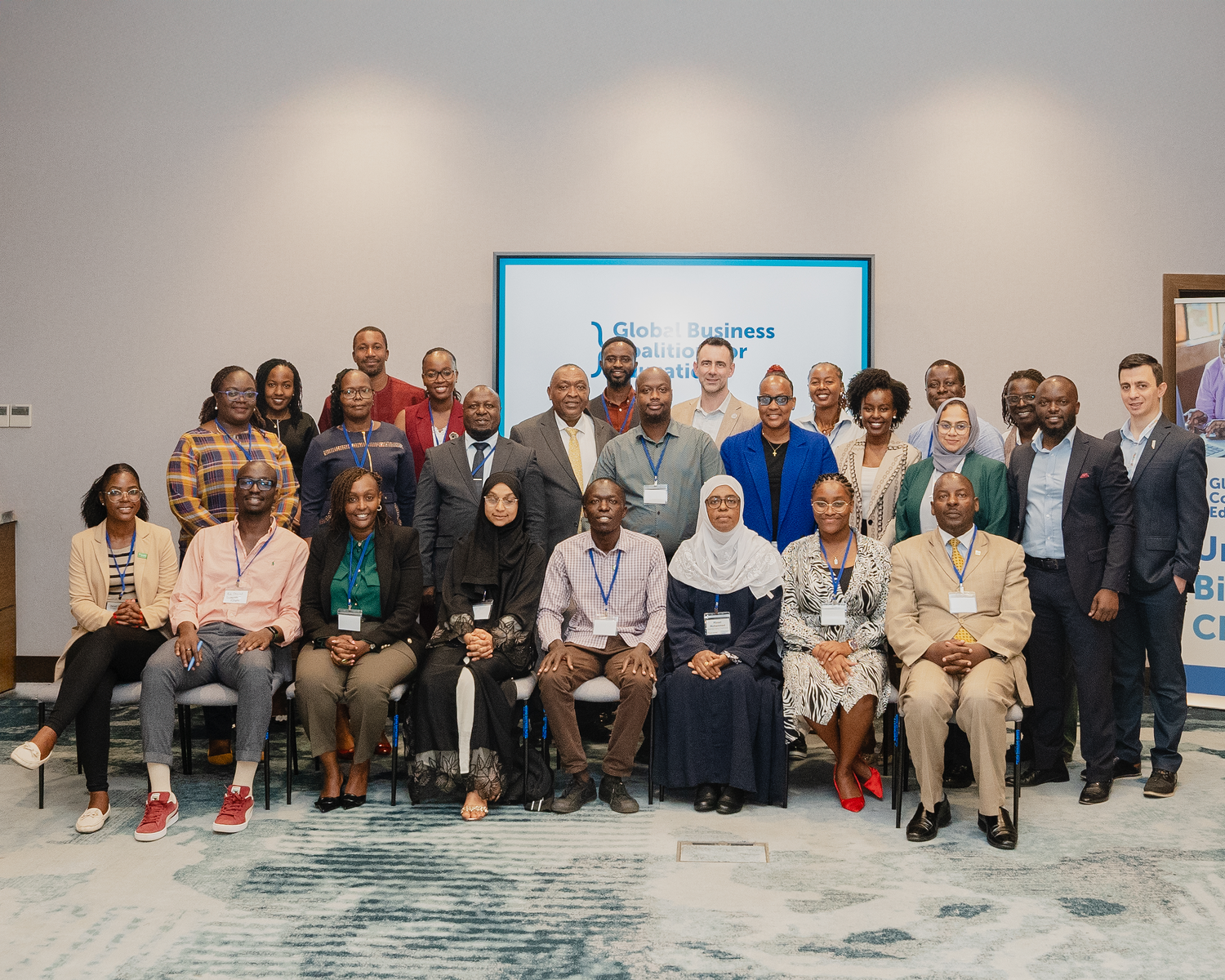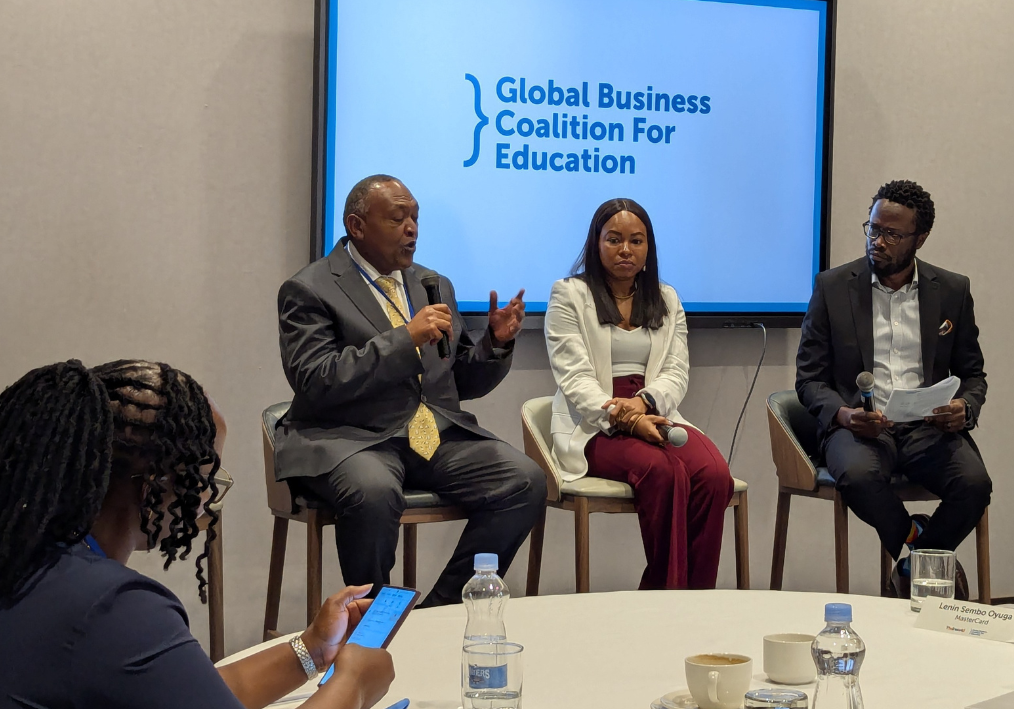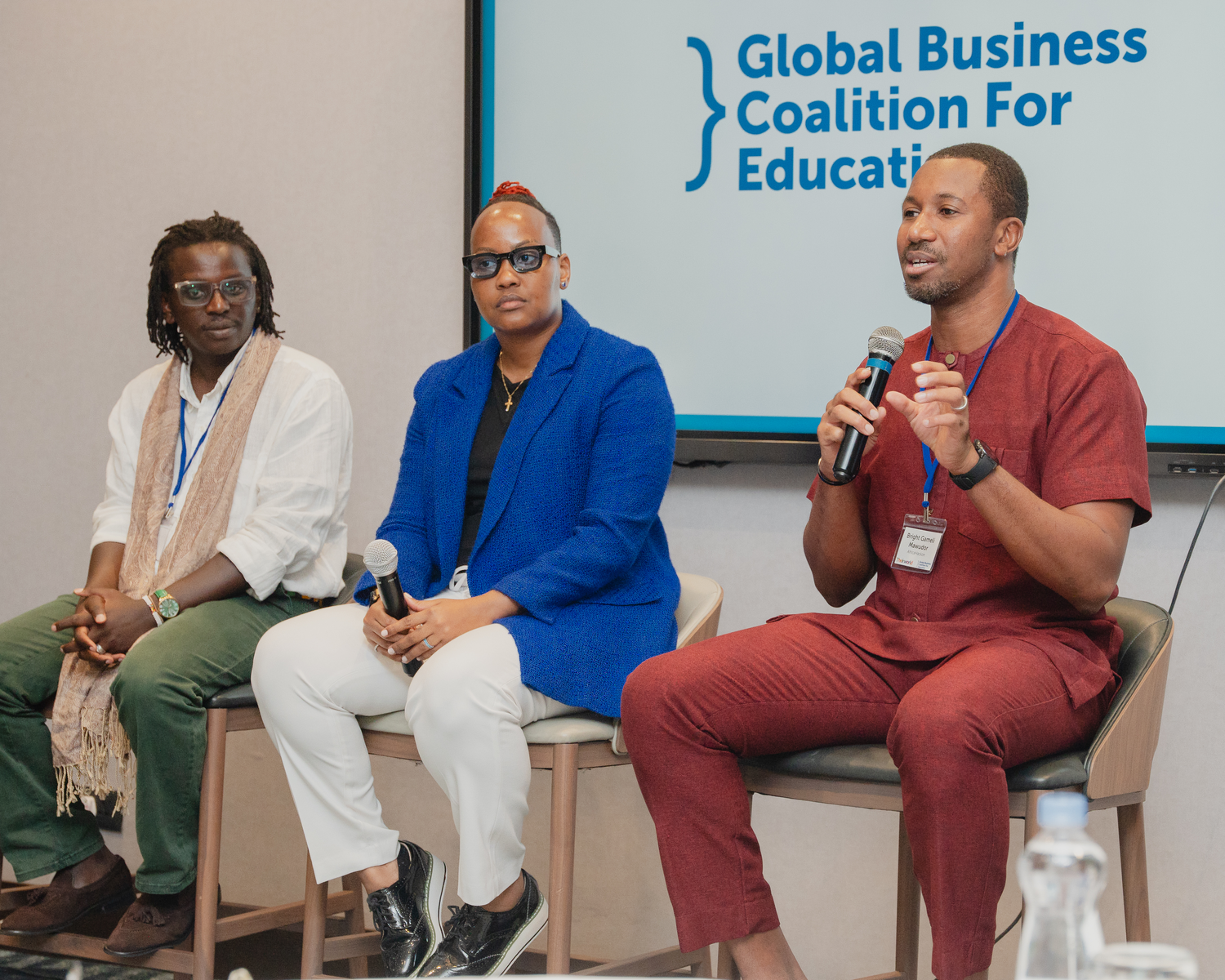Business event in Kenya can be launchpad for youth skills support

The Global Business Coalition for Education hosted a roundtable that brought together leaders from business, innovative programs and government to focus on how to harness the potential of young people in East Africa.
The Global Business Coalition for Education aims to use the momentum from a special event in Kenya to create support for youth-serving organizations in East Africa.
A roundtable hosted in Nairobi brought together businesses, leaders of innovative projects, government ministers and other stakeholders to focus on youth skills and employment issues that are key to the region.
The main themes were youth unemployment, the youth skills gap and education curriculum reform. Conversations at the event – titled Harnessing the Power of East Africa’s Youth: Skills and Employment for the Next Generation – focused around driving progress on these issues.
Participants discussed the challenges and the existing programs trying to solve them, as well as what more needs to be done and how the Global Business Coalition for Education (GBC-Education) can help.
Justin van Fleet, CEO of GBC-Education, set the scene by highlighting that 60% of Africa’s population is under 25. But there is a youth skills and employment gap, creating economic inequality, social unrest and missed opportunities for innovation. The challenge is to harness the potential of that generation to become innovators and entrepreneurs.
Van Fleet told the event: “We look at the business community as a partner. There is so much at stake for your businesses. You have innovations, you have goods, you have services, all which can be used to further education quality.”

Youth skills panellists Emmanuel Kata Kimeu and Nissi Madu with moderator Bonney Tunya at the business roundtable (Global Business Coalition for Education/Dennis Mwangi)
One highlight was the Secretary of ICT from the Kenyan Ministry of ICT & Digital Economy, Mr. Emmanuel Kata Kimeu, who outlined the government’s plans to establish 1,450 digital hubs to support digital literacy and entrepreneurship.
He said: “The hubs will serve as a launchpad for young people in the region to connect, collaborate, grow their businesses – and it aligns perfectly with the government of Kenya’s ongoing efforts to support digital currency.”
The Secretary said there will be 25,000 wi-fi spots around markets, hospitals and other public areas to allow people work anywhere. He added: “The hubs will innovate and encourage the community to take ownership.”
Two panel discussions focused on defining the need for youth skills programs and showcasing innovative projects that are already making an impact.
During the youth skills session, Nissi Madu, Managing Partner at CcHUB/iHUB, emphasized the need to go beyond theoretical education and foster critical problem-solving skills.
She said: “We have a number of ed tech startups in our portfolio that we support to create and leverage technology to improve learning outcomes. We also have programs that we implement in the universities, where we have hubs on campuses, and an innovators program.”

Panellists Ngugi Karega, Mumbi Ndung’u and Dr. Bright Gameli Mawudor discuss innovative programs (Global Business Coalition for Education/Dennis Mwangi)
In the session on innovative programs, Dr. Bright Gameli Mawudor, co-founder of AfricaHackOn, shared how the organization is training and mentoring young cybersecurity experts.
Ngugi Karega, CEO of Skizaa AI, discussed the use of data analytics and machine learning for education and food security optimization. He described how Skizaa is partnering with the government in Kenya to run a school meal program, which reduces food waste by using AI and data analytics.
Mumbi Ndung’u, Executive Director of Power Learn Project, highlighted its mission to train one million software developers across Africa, stressing the need for alignment between skills training and industry demands.
The business roundtable was followed by a lunch with regional partners of the Global Business for Coalition and Theirworld’s Global Youth Ambassadors – a growing network of young advocates for education in their communities and beyond.
Global Youth Ambassadors also joined the business roundtable to share their firsthand experience of the skills gap, unemployment and education-related challenges in the region. They also shared the programs and advocacy they are leading to address the education skills mismatch.
Harnessing GBC-Education’s expertise gained through programs such as the Youth Skills and Employment Accelerator, along with our position on global education policy bodies, GBC-Education can facilitate partnerships and programs to tackle many of the skills challenges in East Africa.
Building on the momentum from the roundtable discussions, along with the ideas and commitments from participants, GBC-Education will work through its East Africa hub to bring innovative solutions to address the youth skills gap.
